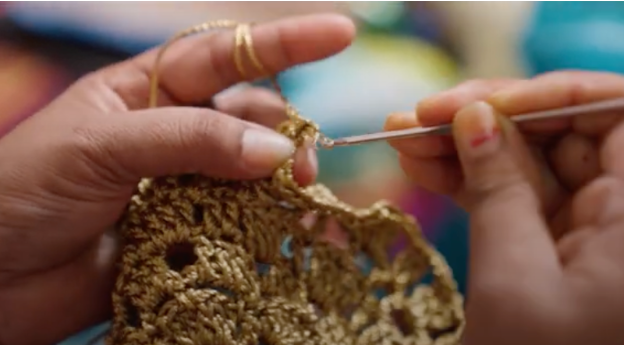Benefits Of Sustainable Packaging For Handmade Corporate Gifts
Jul 01, 2024 | Gracy Gupta
 In today's business landscape, corporate gift-giving has evolved beyond mere tradition; it has become a strategic tool for fostering relationships, expressing gratitude, and enhancing brand loyalty. The United Nations Environmental Protection Act states “Sustainable manufacturing is the creation of manufactured products through economically sound processes that minimize negative environmental impacts while conserving energy and natural resources.
In today's business landscape, corporate gift-giving has evolved beyond mere tradition; it has become a strategic tool for fostering relationships, expressing gratitude, and enhancing brand loyalty. The United Nations Environmental Protection Act states “Sustainable manufacturing is the creation of manufactured products through economically sound processes that minimize negative environmental impacts while conserving energy and natural resources. As businesses increasingly embrace sustainability as a core value, the choice of packaging for corporate gifts has gained significant importance. Sustainable packaging for handmade products not only aligns with environmental goals but also communicates a company’s commitment to responsible eco-friendly practices. This blog explores the multifaceted benefits from environmental and social to marketing and branding, of sustainable packaging in the context of corporate gifting, drawing on real-life examples to illustrate its impact.

Environmental Benefits of Sustainable Packaging
Reducing Waste with Circular Economy Principles
The goal of sustainable packaging is fundamentally centered around waste reduction. Unlike conventional plastic packaging, which often contributes significantly to environmental pollution, sustainable materials offer practical solutions. These materials are typically recyclable, biodegradable, or designed for reuse, thereby mitigating the accumulation of waste in landfills and natural habitats.
By opting for sustainable packaging solutions, businesses contribute to a significant reduction in waste generation. This proactive approach not only aligns with environmental stewardship goals but also addresses the pressing global challenge of plastic pollution. Ultimately, the adoption of sustainable packaging practices fosters a more circular economy where materials are reused, recycled, or biodegraded responsibly, promoting a healthier planet for current and future generations.
For instance, the fashion industry is increasingly acknowledging the importance of embracing zero-waste practices and promoting sustainability. Zero waste in fashion refers to designing, producing, and consuming clothing in a way that generates little to no waste. To explore more on the topic, read more at The Future Of Fashion: Embracing Zero Waste And Sustainability.

Conserving Resources
A key advantage of eco-friendly packaging is its ability to conserve valuable resources. Traditional packaging materials, such as plastics and non-recycled paper, often require significant amounts of energy, water, and raw materials to produce. In contrast, sustainable materials like hemp, bamboo, and recycled paper offer a much greener alternative.
By opting for sustainable materials, businesses can significantly lower their energy and water consumption. Sustainable materials often require less processing and fewer chemical treatments, which translates to lower energy usage. Producing recycled paper consumes about 50% less energy than making paper from virgin pulp. Similarly, processing bamboo and hemp into packaging materials typically involves fewer energy-intensive steps. As for water conservation, traditional packaging materials, especially plastics and non-recycled paper, require substantial amounts of water during production. For instance, hemp requires about half the amount of water to produce the same amount of fiber as cotton.
For instance, Nike stands out in sustainable branding, embedding environmentalism into its core. Committed to reducing its footprint, Nike uses recycled polyester and organic cotton, creating products with up to 50% recycled materials. Their eco-friendly practices extend to footwear, incorporating 20% recycled content. Additionally, Nike champions social sustainability, supporting underrepresented groups, and fostering community development.
Facilitates Sustainable Disposal
Facilitating sustainable disposal is a cornerstone of eco-friendly packaging solutions. By utilizing materials that are compostable or recyclable, businesses can ensure that packaging waste is managed responsibly, aligning with corporate sustainability objectives and significantly reducing contributions to landfills.
Packaging made from recyclable materials such as cardboard, glass, and certain types of plastics can be collected, processed, and remanufactured into new products. This closed-loop recycling approach reduces the need for virgin materials, conserves energy, and decreases the environmental impact associated with packaging production.
For instance, Timberland, a leading apparel brand, promotes sustainable disposal through its Timberloop product take-back program, allowing used footwear, apparel, and accessories to be returned for recycling, repurposing, or repair. This initiative supports environmental sustainability by prolonging product life and reducing waste. Timberland’s commitment to using organic and renewable materials further enhances its green marketing strategy, aligning with consumer preferences for eco-friendly products.
Another example is the fashion and apparel vertical here at Rural Handmade, our bespoke sustainable fashion line designed to marry style with environmental consciousness. From women’s, men’s, and kid’s fashion to accessories, this is your one-stop shop. Embrace fashion that makes a statement for the planet. Discover and customize your look with Rural Handmade.
Biodegradability, Versatility and Adaptability
One of the key benefits of green packaging is its biodegradability, distinguishing it from conventional plastics that pose significant environmental challenges. Biodegradable materials used in green packaging undergo natural decomposition processes. This natural breakdown ensures that once the packaging has served its purpose, it can seamlessly integrate back into the ecosystem without leaving harmful residues or persisting as long-lasting waste. Unlike conventional plastics, which can take hundreds of years to degrade and contribute to global pollution, biodegradable packaging minimizes the accumulation of persistent waste in landfills, oceans, and natural habitats.
On top of that, green packaging solutions are flexible and adaptable to many different industries. There are environmentally acceptable substitutes for electronics and perishable goods that nonetheless meet packaging specifications and preserve the integrity and safety of the product.
Regulatory Compliance and Risk Mitigation
As environmental regulations become more stringent, adopting green packaging practices helps businesses stay compliant with evolving laws and regulations and reduces the risk of penalties or fines associated with non-compliance. By proactively adopting eco-friendly solutions, businesses mitigate legal and regulatory risks, protecting their financial resources and reputation.
Economic Benefits of Sustainable Packaging
Cost Savings
While sustainable packaging might require a higher initial investment, it often leads to long-term cost savings. Sustainable materials are often lighter than traditional packaging options. This characteristic lowers transportation expenses as lighter packages require less fuel for shipping. Moreover, compact packaging reduces the number of shipments needed, further cutting logistics costs.
Moreover, sustainable packaging tends to be more durable, protecting products effectively during transit. This durability minimizes the incidence of damaged goods, thereby lowering expenses associated with replacements and returns. Businesses benefit from fewer losses due to damaged items, preserving profitability and customer satisfaction.
Additionally, as environmental regulations tighten, businesses adopting sustainable practices preemptively avoid potential penalties and compliance costs associated with non-environmentally friendly packaging. Adhering to sustainability standards mitigates legal risks, safeguarding financial resources in the long run.

When considering cost-effective corporate gifting, our sustainable furniture line offers long-term value. Investing in high-quality, eco-friendly pieces not only enhances your brand's image but also reduces future replacement costs due to their durability. Transform your corporate gifts and save costs with Rural Handmade today.
Cost Efficiency
Cost efficiency in eco-friendly packaging solutions offers substantial benefits that extend beyond immediate expenditures. It reduces procurement costs by utilizing recyclable materials in packaging and reducing dependency on virgin resources. Recycled materials, such as cardboard and paper, are often more cost-effective than their non-recyclable counterparts. This reduction in procurement costs stems from lower material acquisition expenses and potentially lower prices due to increased availability and demand for recycled materials in the market.
In addition, eco-friendly packaging encourages streamlined designs that minimize material usage while maintaining functionality and protection. By optimizing packaging dimensions and configurations, businesses reduce material costs per unit and achieve greater efficiency in packaging production and assembly processes.
For instance, Amazon is making significant strides in sustainable packaging, demonstrating a firm commitment to reducing environmental impact. Their initiatives include promoting recyclable and biodegradable packaging materials, as well as implementing innovative packaging solutions like Frustration-Free Packaging. These efforts not only minimize waste but also set a benchmark for sustainability in the e-commerce industry, showcasing Amazon's leadership in balancing business growth with environmental responsibility.
Competitive Advantage
Embracing sustainable practices provides companies with a significant competitive edge in today's market. As awareness of environmental issues grows, consumers are becoming more selective and conscientious about the brands they support. By demonstrating a commitment to sustainability, companies can attract a loyal customer base, enhance their brand image, and ultimately drive sales growth.
Referring to Apple's commitment to sustainability provides a significant competitive advantage enhancing its brand image. They lead the tech industry with renewable energy initiatives, powering global operations with solar and wind energy. Their product design focuses on quality and longevity, discouraging throwaway culture and reducing electronic waste. By designing products for recyclability and ensuring responsible disposal, Apple not only enhances its environmental impact but also builds customer loyalty and sets the gold standard for sustainable practices in the tech world.
Social Benefits of Sustainable Packaging
Supporting Artisans and Local Communities
Many handmade products sourced for corporate gifts are crafted by local artisans and small businesses. By choosing sustainable packaging, businesses can support these artisans and contribute to the economic development of local communities. Sustainable packaging materials can often be sourced locally, further boosting regional economies.
To cite an example, The Body Shop is renowned for its environmental leadership and cruelty-free product development. They were pioneers in advocating against animal testing and offer a wide range of vegan options. Emphasizing responsible sourcing, they work closely with local communities and farmers to ensure fair trade practices and support sustainable livelihoods. Their Community Fair Trade program empowers women and supports biodiversity, while also contributing to human rights, education, and environmental conservation initiatives.
Promoting Ethical Practices
Sustainable packaging aligns with broader ethical standards, including fair labor practices and responsible sourcing of materials. Businesses that prioritize sustainability in their gifting practices uphold higher ethical standards, which can enhance corporate reputation and stakeholder trust.
For instance, Lush is a leader in ethical and eco-friendly cosmetics, committed to using natural, ethically sourced ingredients free from harmful chemicals. They excel in innovative packaging solutions that minimize waste, including plastic-free and recyclable options. Beyond product quality, Lush supports environmental, animal welfare, and human rights causes through initiatives like their Charity Pot program. Their shops are designed to inspire change and educate consumers about ethical consumerism and the social and environmental impact of their products.
Marketing and Branding Benefits of Sustainable Packaging
Enhancing Brand Image
Using sustainable packaging can significantly enhance a brand’s image. Consumers today prefer brands that care about the environment, and eco-friendly packaging can improve market positioning. Embracing eco-friendly packaging enhances brand reputation and attracts environmentally conscious consumers. This positive perception can lead to increased sales and customer loyalty, contributing to long-term profitability and market competitiveness.
As an illustration, Patagonia, the outdoor apparel brand, is well known for its dedication to environmental preservation. By supporting ethical labor standards and allocating a portion of its profits to environmental causes, Patagonia has built a devoted following of consumers who identify the company with positive values.
Appeals to Eco-Conscious Consumers
Modern consumers are increasingly prioritizing environmental responsibility in their purchasing decisions. They prefer brands that actively promote and implement sustainable practices, such as using eco-friendly packaging, reducing carbon footprints, and sourcing materials responsibly. By aligning with these values, companies can differentiate themselves from competitors who may not prioritize sustainability. By adopting green packaging practices, businesses can attract and retain environmentally conscious customers who prioritize sustainability in their purchasing decisions.
If you are an eco-conscious consumer and want to know how you can contribute more, check out Eco-friendly Shopping Tips: A Short Guide To Sustainable Purchasing

Engaging Consumers Through Storytelling
Sustainable packaging provides a compelling storytelling platform for businesses to communicate their sustainability journey and initiatives. By sharing the story behind their eco-friendly packaging choices, businesses can connect with consumers on a deeper level and foster brand loyalty.
As previously mentioned, Lush Cosmetics is renowned for its commitment to sustainable packaging practices. The company offers "naked" products, which are sold without any packaging to reduce waste. Lush engages consumers through educational campaigns and initiatives that highlight their efforts to minimize environmental impact. This approach not only educates consumers but also encourages them to make more sustainable purchasing decisions, further enhancing Lush's brand reputation.
Practical Implications for Corporate Gifting
Customization and Personalization
Sustainable packaging for handmade products offers extensive opportunities for customization, allowing companies to create unique and memorable corporate gifts. Customizing these gifts can significantly enhance their perceived value and make recipients feel appreciated and special.
If you are looking for sustainable gifting options in the corporate sphere, don’t forget to check out Brown Living. It offers an exceptional range of sustainable options for corporate gifting, emphasizing eco-friendly practices and products. Their curated selection includes items made from natural, biodegradable, and recycled materials, ensuring minimal environmental impact. By choosing Brown Living for corporate gifts, companies can demonstrate their commitment to sustainability, enhance their brand image, and delight recipients with thoughtfully designed, planet-friendly gifts.
Aligning with Corporate Values
Corporate gifting should be a reflection of a company’s core values and principles. For companies that prioritize sustainability, using eco-friendly packaging for gifts is a natural extension of their commitment to environmental stewardship. This alignment not only reinforces the company’s values but also sends a clear message to recipients about the importance of sustainability.
Aligning with corporate values, Rural Handmade demonstrates a dedication to both employee health and sustainability. Elevate your office and reinforce your corporate values with our workplace wellness line.
Enhancing Employee Morale
Employees take pride in working for companies that demonstrate social and environmental responsibility. When companies use sustainable packaging for corporate gifts, it can boost employee morale and foster a sense of pride and belonging within the organization. This practice shows employees that the company values its commitment to the environment and is willing to invest in sustainable practices.
Consider gifting employees handmade notebooks in sustainable packaging to celebrate Earth Day. Such a gesture shows appreciation for their hard work while reinforcing the company’s commitment to sustainability. This not only boosts morale but also encourages employees to embrace and support the company’s environmental initiatives, fostering a positive and engaged workforce.
By incorporating customization, aligning with corporate values, and enhancing employee morale, sustainable packaging for corporate gifts becomes a powerful tool for businesses. It strengthens relationships, reinforces brand identity, and demonstrates a genuine commitment to sustainability, ultimately contributing to a positive and impactful corporate culture.

Conclusion
To wrap it up right, sustainable packaging for handmade products in corporate gifting offers numerous benefits, from environmental conservation to enhanced brand image and economic savings. Supporting local artisans and promoting ethical practices make a positive societal impact while strengthening relationships with clients, employees, and partners. As sustainability becomes increasingly crucial, adopting eco-friendly packaging in corporate gifting can set a company apart and contribute to a more responsible business environment. Moreover, by choosing eco-friendly packaging, companies can significantly reduce their carbon footprint and contribute to the preservation of natural resources. This commitment to sustainability helps mitigate the adverse effects of traditional packaging materials on the environment, such as plastic pollution and deforestation.
While the initial investment in sustainable packaging may be higher, the long-term economic benefits are substantial. Additionally, embracing sustainable packaging for corporate gifts reflects a company’s values and steps toward a sustainable future. Corporations can even support small businesses and encourage ethical behavior by including locally manufactured goods from craftsmen in their corporate giving programs. Businesses can create good change, forge closer bonds with others, and gain a competitive advantage in the market by adopting sustainable business practices.
Recommended








